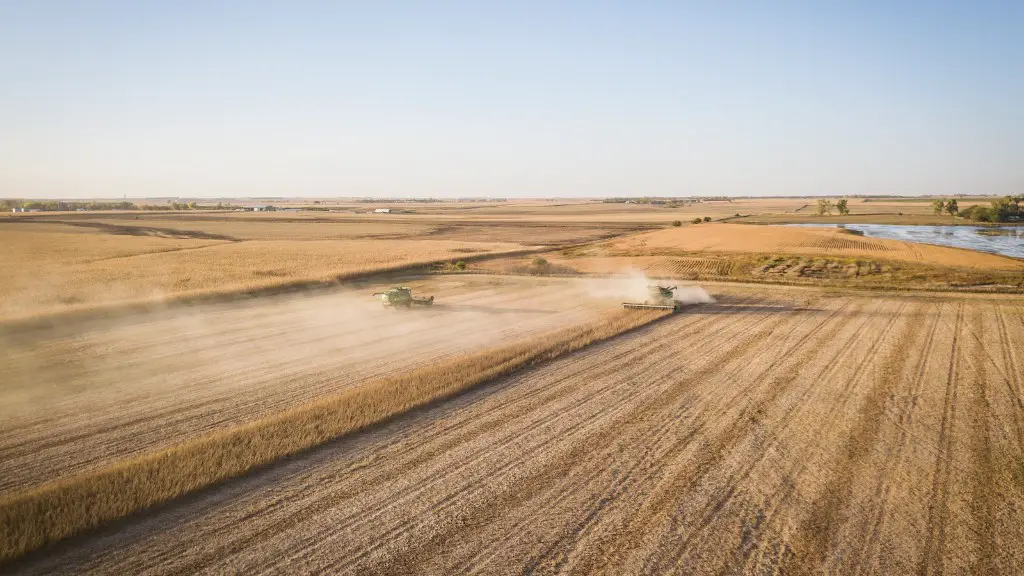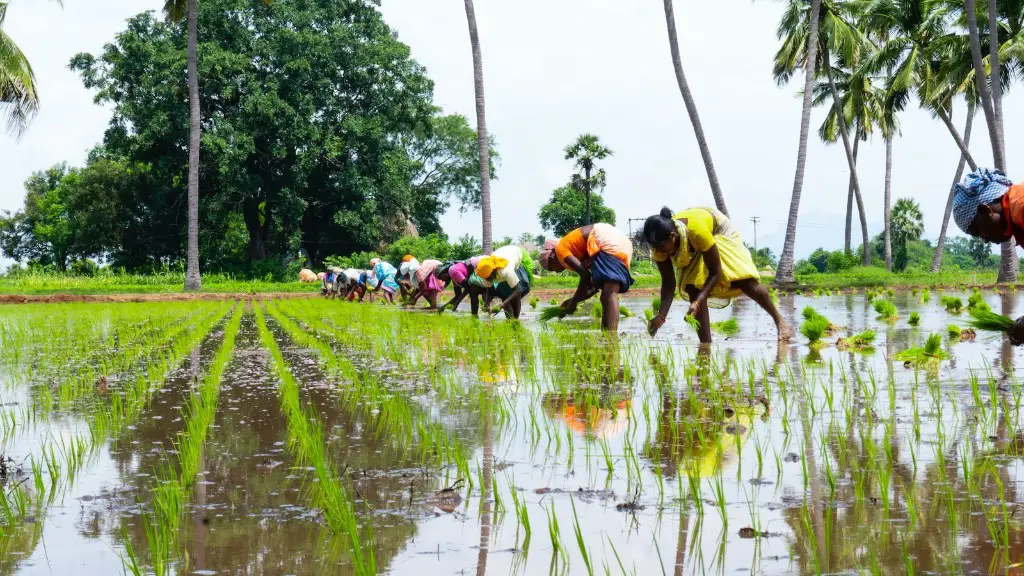Agriculture is a multifaceted profession that plays an important role in ensuring global food security. It also provides a living for millions of people around the world and certain sectors of production are integral to the economies of countries globally. Generally, the agricultural salary is dependent on the region, specialty, education, and experience of the individual and there is also a large range in terms of annual earnings. Salary expectations vary wildly depending on the sector, such as farming, producing, selling, or managing activities, but here we will look at the salary for agriculture professionals and agricultural workers.
The terms ‘agricultural workers’ and ‘agriculture professionals’ refer to different tiers of roles within the profession. Typically agricultural workers are employed by farmers and take on agricultural-related tasks such as tending to farmland, harvesting crops and working with livestock. In contrast, professionals may specialize in a different type of farming or livestock production and may be also employed in a variety of production capacities.
The salary for an agricultural worker is usually lower than for an agricultural professional. According to the US Bureau of Labor Statistics, the median annual income for agricultural workers in 2010 was $21,360, while the median annual salary for agricultural professionals was $42,620. This figure can vary significantly however depending on location, the specialty, and the experience of the individual.
For comparison, in the United Kingdom the median salary for agricultural workers was reported as £8.21 an hour in 2020, though the salary could be lower or higher depending on the region, like any job salary. Meanwhile, agricultural managers have an income of typically around £25,000 to £30,000 an hour, while agricultural consultants earn more, with salaries ranging from £50,000 to £65,000 depending on experience and location.
Salaries for agricultural professionals are also strongly correlated with the sector. For example, the median salary for crop production in the United States was $71,780 in 2018, while it was $61,464 for animal production. These figures can differ greatly over different continents, with the average salary for crop production in African countries being significantly lower than in North America or Europe.
Conversely, agricultural engineers tend to earn more as their position requires a lot of education and experience. The median salary for an agricultural engineer in the US was $68,570 in 2018, while in Canada it was $97,101. The salary can also be higher depending on the work location and the experience and education of the individual.
Agricultural Research
Agricultural research involves the study of plants, animals, and other organisms of agricultural importance. This includes plant breeding, crop and farm management techniques, pest control, soil management, animal husbandry and nutrition, and many other areas of study. Agricultural research is highly specialized, with scientists often working in specialized fields in order to better understanding their subject.
In the United States, the median income for agricultural researchers was $63,270 in 2018. However, this can depend on the sector. For example, those who specialize in soil science tend to earn more than those on a general research topic. In Europe, the salary for an agricultural research assistant is typically between £17,000 and £25,000.
In terms of agricultural professionals, salaries can differ between countries. In the United States, the median salary for an agronomist in 2018 was $67,120. Meanwhile, in the United Kingdom, the median salary for an agricultural consultant was £49,999. Again, experience, education, and qualifications play a key role in determining the salary in this field.
Agricultural professionals also have the option of transitioning into other related fields such as environmental science, food science, and biotechnology. These branches of science and technology may also offer more opportunities, with salaries ranging from £30,000 to more than £90,000 in the United Kingdom.
Agribusiness
Agribusiness is the business of producing, purchasing and selling agricultural products. It can involve a range of activities and businesses, from large-scale food production and distribution to agricultural financing and marketing. There are a number of professional roles within agribusiness, ranging from farm managers and agribusiness advisors to commodity traders, agricultural advisors, and financial consultants.
Agribusiness professionals often earn a higher salary than agricultural workers or researchers. According to the United States Bureau of Labor Statistics, the median salary for a farm manager in the United States was $71,660 in 2018, while agribusiness advisors earned on average $77,610, and agricultural credit managers earned $90,530. These figures may differ by region and specialism, with rural areas typically paying lower salaries than more urban locations.
In the United Kingdom, the median salary for agricultural advisors was £37,500 in 2018, while those in the food supply, distribution and retail industries earned an average of £34,571. Meanwhile, commodity traders in the UK were among the highest earners in this field, with salaries ranging from £60,000 to £90,000.
The salaries for agribusiness professionals also vary depending on the level of experience. Entry-level positions require less experience and often pay lower wages, while more experienced professionals can command a higher salary, particularly in specialised roles. Additionally, those with advanced degrees in agricultural economics or related fields may have an advantage in the job market.
Agropreneurship
Agropreneurship is the practice of running a business based on agricultural products or services. It is a growing field, with more and more entrepreneurs turning to agriculture as a base for their business ideas. Agropreneurs come from a variety of backgrounds, from farmers to entrepreneurs looking for a way to break into the agricultural sector.
The salary for agropreneurs can vary from business to business, and is heavily reliant on the success of the venture. Those with greater experience, knowledge, and resources may find it easier to succeed, and may be able to attract larger investments and generate larger revenues. Those at the beginner level may face more difficulty in establishing a viable business but can still earn an income from agropreneurship.
In the United States, the median salary for agricultural entrepreneurs was $56,140 in 2018. In Canada, the median salary was $100,060 while in Australia the median income was $128,920 in the same year. These figures can be highly variable however, and much of the earning potential comes down to the success of the individual’s business. As with any entrepreneurial venture, there is a great deal of risk involved and profits may come in irregularly.
Agropreneurs may also benefit from various forms of government support. For example, the US Department of Agriculture offers grants and loans to support agricultural businesses, while many countries in Europe provide funding and other incentives to encourage agricultural research and development.
Organic Agriculture
Organic agriculture is a type of farming or production that does not use synthetic chemicals or other forms of artificial inputs. Instead, it relies on natural processes and biological materials to achieve the desired outcome. This type of farming is growing in popularity and there are now many organic producers around the world.
The salary for organic farmers and producers can vary, but is typically similar to that of conventional agricultural workers. According to the US Bureau of Labor Statistics, the median salary for organic food producers in 2018 was $25,470. In the United Kingdom, the median salary for certified organic farmers was £24,256 in 2020. These figures can differ geographically, with salaries in some regions being higher due to higher demand for organic produce.
As with conventional farming, salaries for organic farmers may also vary depending on the type of work, such as crop or livestock production. Organic livestock producers usually earn slightly more than crop producers, with the median salary for a livestock specialist in the US being $27,190 in 2018. Similarly, in the UK, the median salary for an organic livestock specialist was £27,288.
Organic agriculture is also typically more labour-intensive than conventional agriculture, which may also have an impact on the salary. Organic farmers may need to spend more time and resources on promoting their products, meeting organic standards, and engaging with customers, which can make it more difficult to generate higher incomes.
Organic Portion of Agricultural Market
Organic food is becoming increasingly popular and is now a significant portion of the agricultural market. According to the Organic Agricultural Market, organic produce accounted for 8.5% of the global food market in 2018, up from 5.8% in 2010. This equates to around $128 billion in sales, a figure that is increasing every year.
Organic producers may benefit from this increased demand, as organic produce generally commands a higher price than conventional produce. The average price for organic produce in the United States was 17% higher than for conventional produce in 2018, and in some cases, the difference can be even greater. This in turn can help to boost the salaries of organic farmers and producers.
Organic producers may also benefit from government incentives and other forms of support. For example, many countries offer financial and other forms of assistance to organic farmers, such as subsidies and Organic Farming Systems Plans. Additionally, organic certification programs can provide additional income opportunities, as they may entitle producers to a premium price.
Organic farming also provides other monetary benefits, such as reduced input costs, improved soil quality, and less reliance on chemical pesticides and fertilizers. All of these benefits can help to improve incomes for organic farmers, and in turn attract more people to this type of farming.





